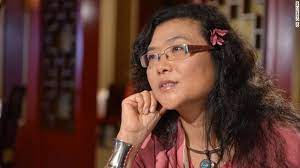 China saw for the first time its population drop. Journalist and author Zhang Lijia explains in the South China Morning Post why the government should take this development seriously and what actions it could take. “Leaders will have to learn to treat citizens with respect,” she adds.
China saw for the first time its population drop. Journalist and author Zhang Lijia explains in the South China Morning Post why the government should take this development seriously and what actions it could take. “Leaders will have to learn to treat citizens with respect,” she adds.
Zhang Lijia:
The low fertility rate is China’s long-term time bomb. In the past, the Chinese economy benefited from an abundant and youthful labour force. Now the sharply declining fertility rate, compounded with a rapidly ageing population and longer lifespan, will inevitably cause labour shortages and an economic downturn.
The authorities have to take the matter extremely seriously. A good starting point would be offering better legal protection to working mothers and introducing measures that help them balance work and life, such as longer maternity leave and good childcare facilities while severely punishing those who mistreat them. Pregnant workers are still frequently sacked by employers, and the perpetrators are rarely punished.
I also hope the Chinese government will deal with the matter humanely instead of using coercion or force, such as the forced sterilisation and abortion that supported the one-child policy. Back then, local officials competed with each other in coming up with excessive measures. As a factory worker in the 1980s, I had to visit the “period police” every month to show I was not pregnant.
“China’s current political and economic model is a typical legalist model of ‘powerful government and weak families’,” said Yi Fuxian, a professor at the University of Wisconsin-Madison and author of Big Country with an Empty Nest.
“The legalists can enable the country to rise rapidly. But this rise is unsustainable because it undermines family values and unduly restricts individual freedom, which can lead to a decline in population and socioeconomic vitality.”
Legalism, an ancient school of philosophy, emphasises strong state control and absolute obedience to authorities. I doubt the legalists’ heavy-handed way can work well in the long run given that today’s youth are more individualistic and aware of their rights.
The recent protests against excessive anti-pandemic measures are a case in point. It might be difficult for the authoritarian regime to give up the legalist model, but leaders will have to learn to treat citizens with respect.
Yi has this word of warning: “The Chinese authorities need to accept this difficult truth. China is not facing a rise but an existential crisis unseen for thousands of years.”
More in the South China Morning Post.
Zhang Lijia is a speaker at the China Speakers Bureau. Do you need her at your meeting or conference? Do get in touch or fill in our speakers’ request form.
Are you looking for more political experts at the China Speakers Bureau? Do check out this list.




